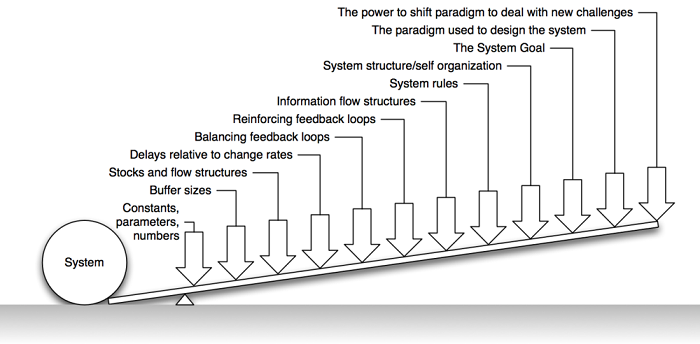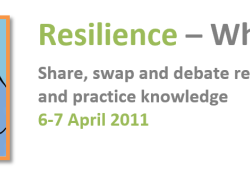Topic: Complex systems: theory and practice – Phil Haynes
Resources: You can download Phil’s slides and you can read our Blog
Summary: The application of complex systems theory to social science emphasises the indeterminate nature of society, the prominence of interaction and feedback, and the dynamic emergence of social phenomena (such as social norms and cultural beliefs). When these constructs are applied to practice, the term “complexity” implies difficulty in discovering universal and generalizable practices. However, as with critical realism, complexity puts much emphasis on “context” and “adaptability” when thinking about these practices.
In this session Phil talked about how systems theory can help us understand how situating resilience-building activities within an understanding of complex dynamic systems can help to identify “leverage points” in aspects such as the rules, goals and power distributions of complex situations. These may lead to “turning points” where a small shift (ie a small “resilient move”) in one area of a person’s life can produce bigger positive changes in other areas.
Biography: Phil Haynes is professor of public policy at the University of Brighton. His interests include the application of complexity science and complex systems to applied social science and public policy. His scholarship includes developing mix methods for the purpose of researching complexity in a variety of policy situations. His previous books include: Managing complexity in the public services (now in its second edition, 2015), Public Policy beyond the financial crisis (2012), and his new book Social Synthesis: finding dynamic patterns in complex systems, is forth coming in 2017. He has also published in a range of journals including: Social Policy and Administration, Public Management Review, Public Money and Management, and the International Journal of Public Administration.
Who might be most interested: Academics, practitioners, researchers, students, community workers, volunteers, public sector workers.
Key readings: Something on systems by Donella Meadows – ie: http://donellameadows.org/archives/leverage-points-places-to-intervene-in-a-system/
This session took place on Thursday 19 January 2017.
The Resilience Forum is for ANYBODY (with a pulse!) involved with or interested in resilience research!


